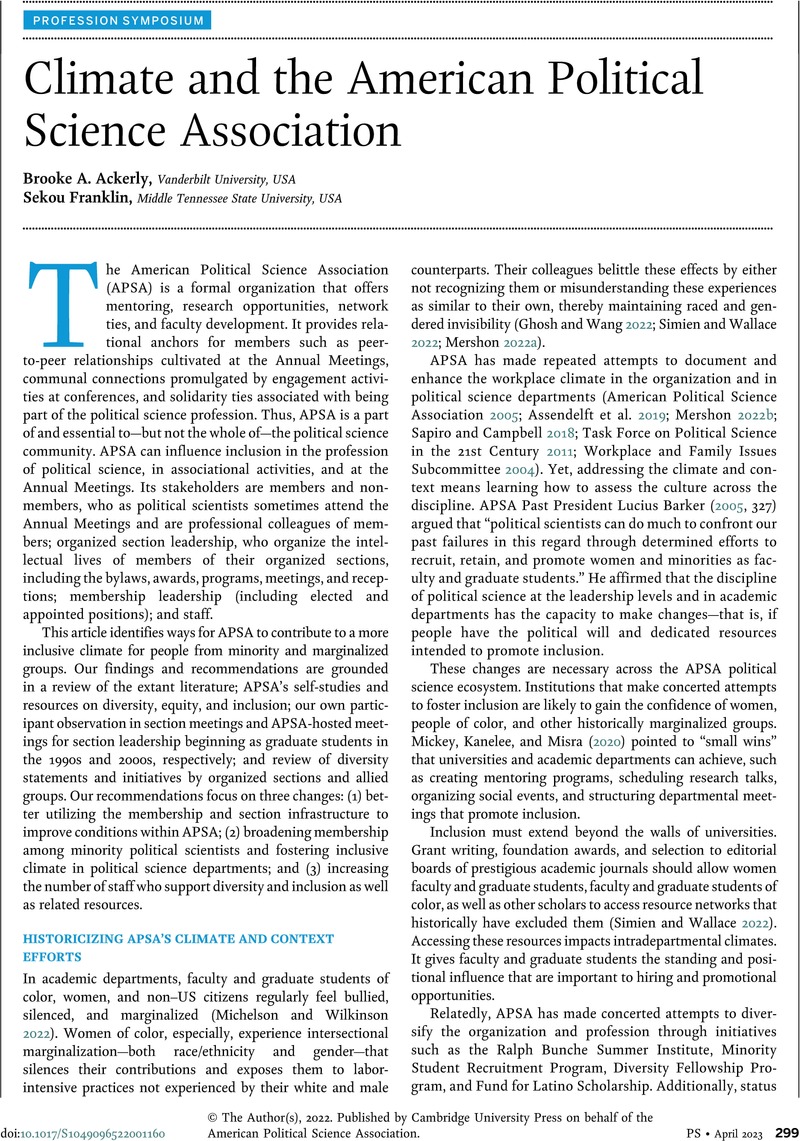Crossref Citations
This article has been cited by the following publications. This list is generated based on data provided by Crossref.
Mershon, Carol
2023.
Conclusion: Recent Steps and the Road Ahead in the Enduring Quest for Equity in Political Science.
PS: Political Science & Politics,
Vol. 56,
Issue. 2,
p.
304.



